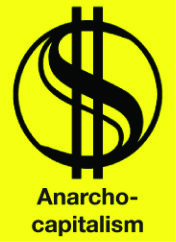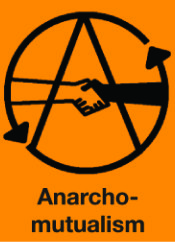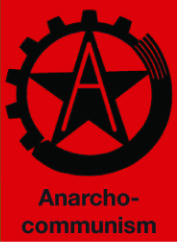Characteristics of Capitalism
There are some commonly-ascribed attributes of capitalism that are important in the various conflicting definitions of capitalism used by different schools of thought. Depending on the ideology and its terminology, some conditions are necessary to the concept of capitalism, some are sufficient to define capitalism, and some are disqualifying. (1-5) Also, there are various alleged or predicted consequences of capitalism. (6-10)
These are the grids for various forms of anarchism. They are ordered from most propertarian to most anti-propertarian.

Anarcho-capitalist definitions of capitalism:
| Attribute | Necessary Condition |
Sufficient Condition |
Disqualifying Condition |
Likely Result |
Unlikely Result |
|---|---|---|---|---|---|
| Private Ownership of MOP |
✓ | ||||
| Free Trade (no govt intervention) |
✓ | ||||
| Govt Regulated Property & Trade | ✓ | ||||
| Enforceable Property Rights |
✓ | ||||
| Allows Usury (rent/interest/profit) | ✓ | ||||
| Concentrates Wealth |
✓ | ||||
| For Profit Firms Predominate | ✓ | ||||
| Employment Free Trade in Labor |
✓ | ||||
| Rule by Capitalists |
✓ | ||||
| Domination by a few MegaCorps |
✓ |
The anarcho-capitalist definition of capitalism is: an economic system with free trade and private property. Thus, attributes 1 and 2 are sufficient for capitalism. Enforceable property rights and tolerance for usury follow from 1 and 2.

Mutualist/Individualist Anarchist definitions of capitalism:
| Attribute | Necessary Condition |
Sufficient Condition |
Disqualifying Condition |
Likely Result |
Unlikely Result |
|---|---|---|---|---|---|
| Private Ownership of MOP |
✓ | ||||
| Free Trade (no govt intervention) |
✓ | ||||
| Govt Regulated Property & Trade | ✓ | ||||
| Enforceable Property Rights |
✓ | ||||
| Allows Usury (rent/interest/profit) | ✓ | ||||
| Concentrates Wealth |
✓ | ||||
| For Profit Firms Predominate | ✓ | ||||
| Employment Free Trade in Labor |
✓ | ||||
| Rule by Capitalists |
✓ | ||||
| Domination by a few MegaCorps |
✓ |
The mutualist (and individualist anarchist) definition of capitalism is: an economic system with private property but also with government regulation. By the mutualist definition, capitalism lacks free trade due to government imposed monopolies. While free trade is a necessary condition in the anarcho-capitalist definition, it is a disqualifying condition in the mutualist one.

Anarcho-communist definitions of capitalism:
| Attribute | Necessary Condition |
Sufficient Condition |
Disqualifying Condition |
Likely Result |
Unlikely Result |
|---|---|---|---|---|---|
| Private Ownership of MOP |
✓ | ✓ | |||
| Free Trade (no govt intervention) |
✓ | ||||
| Govt Regulated Property & Trade | ✓ | ✓ | |||
| Enforceable Property Rights |
✓ | ||||
| Allows Usury (rent/interest/profit) | ✓ | ||||
| Concentrates Wealth |
✓ | ||||
| For Profit Firms Predominate | ✓ | ||||
| Employment Free Trade in Labor |
✓ | ||||
| Rule by Capitalists |
✓ | ||||
| Domination by a few MegaCorps |
✓ |
The anarcho-communist definition of capitalism is: an economic system with private property. Unlike mutualists who think that private property is natural and fine when freed from State invasion, ancoms believe that private property can only exist through State power (influenced or controlled by capitalists). Thus government regulation of property is both a necessary and sufficient condition for capitalism to exist in ancom theory. Some ancoms are not concerned with free trade, believing in a post-scarcity gift economy. Other anarcho-socialists see worker collectives as trading freely among themselves.
